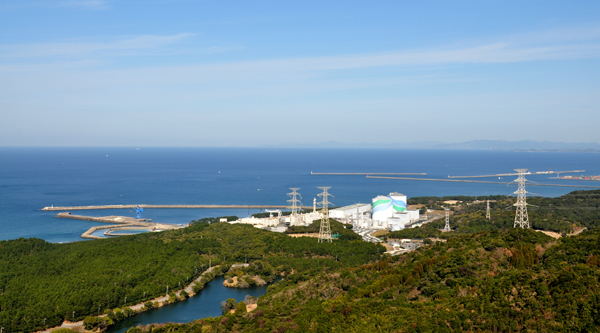This meeting brings to a head and to a confrontation two separate processes: First, that of Kyushu Electric who spent a great deal of time and money to bring the Sendai plant back on line; and second, a popular election process in the prefecture that saw the victory of a candidate who ran on an anti-nuclear platform. Earthquakes in April centered in an adjoining prefecture have become the catalyst for the specific move by Mitazono to get Sendai shut down, although it would have been expected to occur at some point anyway given the election mandate.
At the meeting, Kyushu Electric's president said he would seriously consider the requests - a sentiment echoed by a terse press release on the company's website.
Mitazono is a former TV Asahi commentator who decided to run for the governorship of Kagoshima Prefecture on an essentially anti-nuclear energy platform. He defeated incumbent Yucihiro Ito on July 10, who had held the office for 16 years. Before the end of July, Mitazono had announced that he would take some sort of action to get the Sendai plant shut down in the wake of earthquakes which had occurred in a neighboring prefecture three months before the election. According to the Japan Times, the office of the prefectural governor does not in this case have the authority to singlehandedly order the operator to shut down the plant, although it does have (by mutual agreement) the right to enter the plant to ensure that safety measures in the post-Fukushima environment are being applied. Mitazono, not surprisingly, announced his intent to get Kyushu Electric to shut down the Sendai plant at his very first news conference post-election. The August 26th meeting is the culmination of that announced effort.
In his request to Kyushu Electric Mitazono also asks for a new reappraisal of the seismic conditions in and around the Sendai nuclear plant.
According to NHK World News, the Nuclear Regulation Authority of Japan has no immediate plans to respond to the prefectural request to shut down the reactors, and NHK quoted NRA official Katsumi Matsuura as saying that the NRA believes that the plant has no safety issues even after the recent earthquakes in the neighboring prefecture.
A key issue in the operation of the Sendai plant though is the fact that while the prefectural government cannot order a reactor shut down, it can prevent the restart of one that is shut down. Eventually, the Sendai reactors will have to shut down to refuel, and it would be then that Mitazono could obtain the long term stoppage he seeks.
What effect this confrontation has on the broader nuclear energy picture in Japan is difficult to say, but the precedent for intervenor and government stoppage of nuclear plants continues to grow. Already, the Takahama plant has been shut down by a court order after having been fully approved by the nation's nuclear regulator to restart. As reported by Andrew Follett at Daily Caller, Japan's energy situation is dire, with the nation importing all of its fuels (coal, oil and natural gas, at a cost of $40 billion per year) -- leading the Japanese government to push for a revival of nuclear energy to lower overall energy costs and reverse the decline in industrial manufacturing and income.


